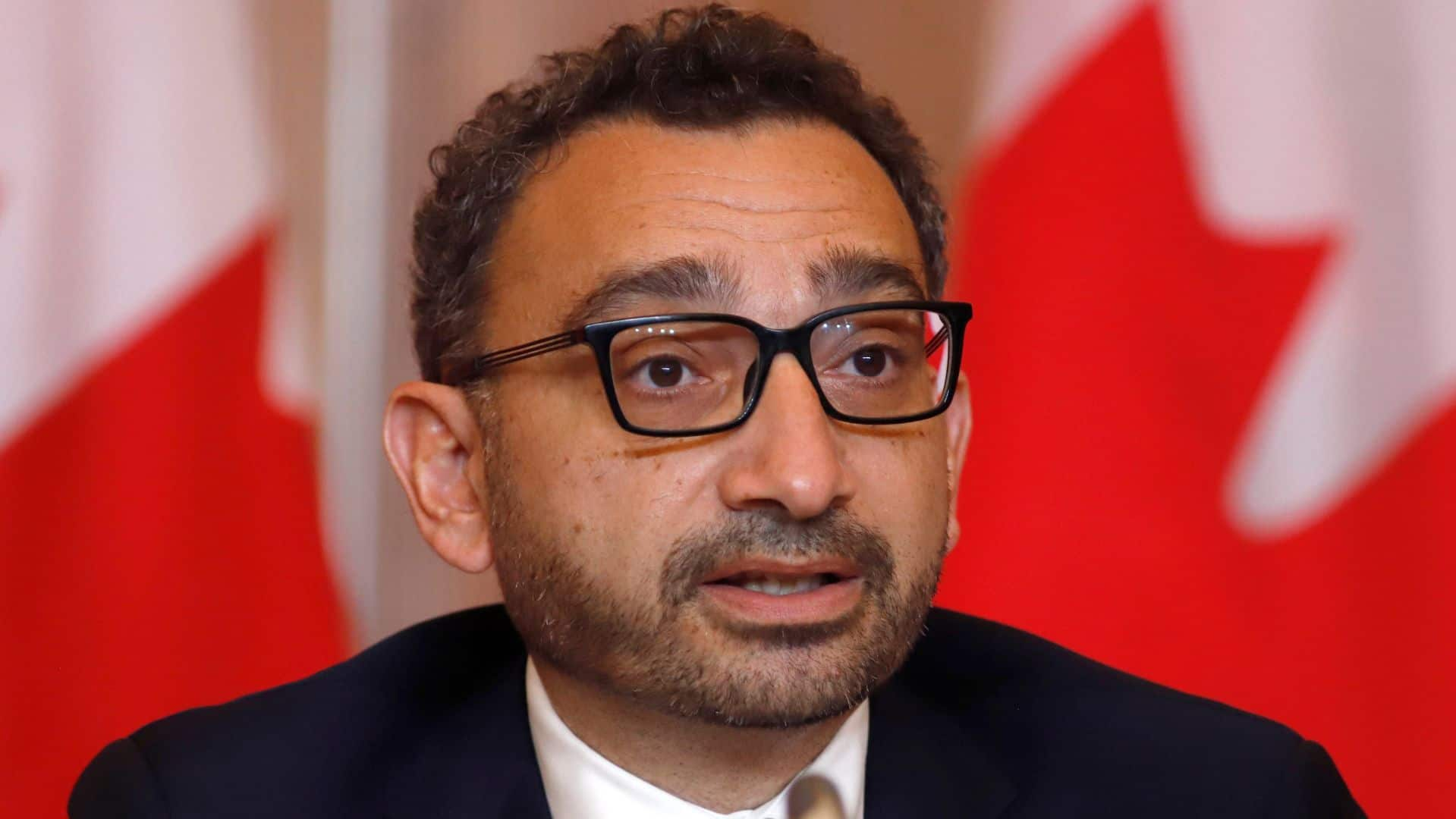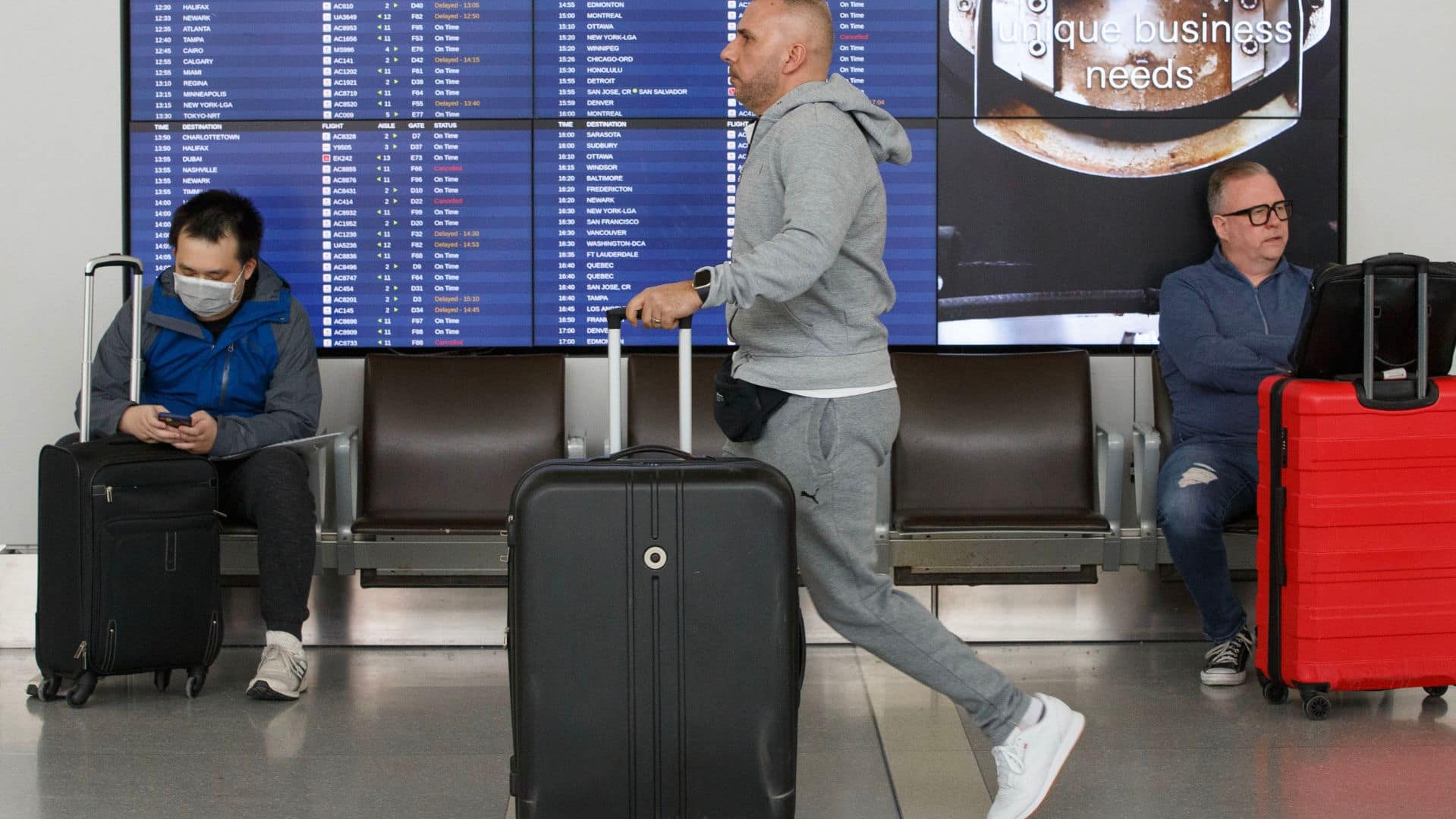Remember the images of travel from last summer and the more recent winter holidays? The lost bags, long waits on tarmacs and piles of luggage in arrivals? Some of Canada's airports are promising travellers those scenes won't be the norm this summer.
"We have heard our customers," said Greater Toronto Airports Authority president and CEO Deborah Flint at Pearson International Monday. "The anxiety, the uncertainty, the frustration, and the lack of control that was felt by passengers last year is one that we will never forget."
With almost all COVID-19-related travel restrictions lifted, it's expected that the pent-up desire to get away will result in even higher numbers of Canadians travelling by air over the coming months.
"Demand is really, really strong," said travel agent Ken Stewart, owner of Crowfoot Travel Solutions in Calgary. "Everybody started to travel again last year. And those who didn't get away last year are adding to the numbers that are getting away this year."
Stewart says that demand is being seen right across the board heading into summer — with people wanting to fly domestically, to the U.S., to Europe and even still to sun destinations.

What's happening at YYZ (Toronto)
Pearson, Canada's largest airport, last summer saw overflowing baggage halls, stranded passengers, flight delays and cancellations. But Flint says things will be different this year.
Last summer, on-time performance was at just 35 per cent, she said. "Currently, our airlines are departing with 70 per cent on-time performance statistics," she said.
Over the past year, Pearson has hired 10,000 new employees — an increase of almost 22 per cent — for a total of 50,000 workers — about on par with 2019 levels. That includes 130 new staff announced last week to help in critical areas at Pearson such as busing, baggage handling and terminal operations.
The airport expects about 80 per cent of the summer traffic it saw before the pandemic — an increase of about 10 per cent over last year. And Flint says employees are now more experienced, too.
"Last year, we saw an environment where there was rapid hiring," she said, referring to the period just after many travel restrictions were lifted and there was a huge surge in air travel. She attributed some of the slow-downs in certain processing areas of the airport to inexperience.
"This is a very complicated business for an entry employee to work," Flint said. "It's highly regulatory and complex, so learning that environment day one or day two or week two on the job is very difficult."
Key systems have also been upgraded. The airport has streamlined its contactless check-in and boarding processes through a new partnership with the Canada Border Services Agency to deploy biometric e-gates and speed up customs clearance for travellers.
The airport is also using artificial intelligence to better manage passengers' checked bags.
Day 65:50Air Canada said their luggage was lost. Their air tags said otherwise
What's happening at YUL (Montreal)
Montréal–Trudeau International Airport says it has also been working to increase staffing levels and will complete improvements to its baggage-handling systems and connecting passenger facilities in June. It expects summer passenger traffic to return to 2019 levels, when the airport saw six million travellers from June to August.
"Obviously, given the high number of passengers expected this summer, it is possible that there will be a little more waiting than usual during peak hours, especially in the early morning and late afternoon and evening," said Aéroports de Montréal communications adviser Eric Forest in an email to CBC News.
The airport is encouraging passengers to use all of the technology available to them to make the process smoother. That includes YUL Express, which lets travellers pre-book passage through the security checkpoints, and Mobile Passport Control, an app that allows people to submit passport information and customs declaration in advance of U.S. departures.

What's happening at YVR (Vancouver)
Vancouver's YVR says it expects August will be its busiest summer month, but is anticipating an average of 81,000 passengers to pass through its doors each day of summer — about on par with pre-COVID numbers.
"In preparation, we have worked with airlines as they've developed their summer schedules to make sure we are ready to get passengers where they want to go safely and efficiently," a YVR spokesperson said in a statement emailed to CBC News.
The airport says it's reviewing each area of its operations and service to match summer demand, a move that followed last winter's service disruptions.
What's happening at YYC (Calgary)
While Calgary's airport did not didn't experience the kinds of delays other hubs did last year, president and CEO Bob Sartor says with high demand across the country, there's always potential for spill-over effects.
"I think there's going to be hiccups here and there. There's only so many agency staff that are available from the federal government," he said in Calgary last week.
"It's going to be a question of managing flight flow. You know, air carriers like to operate on peaks... and we have to make sure that those peaks are not so high that they can't be properly serviced."
What the airlines are planning
Air Canada says it is taking "a prudent approach" to scheduling this summer, planning to operate 90 per cent of its pre-pandemic summer 2019 schedule. "Despite less flying, we actually have more people on staff than in summer 2019 and this should further help with resiliency," a spokesperson for the airline said in an email.
"We have added resources and taken other measures too, such as adjusting our schedule to create more connection time for customers and to flatten out peak flying periods during the day for better customer flow."
A looming concern for some travellers is potential labour unrest at Canada's other major airline, WestJet.
About 1,850 WestJet pilots with the Air Line Pilots Association are poised to strike as of May 16, which could result in anything from refusal to do overtime to a full-blown strike.
It's not clear what that could mean for people who already have travel booked with WestJet, but Sylvie De Bellefeuille, a lawyer with Option Consommateurs, a nonprofit organization promoting consumer rights, told CBC News last week that she believes refunds should be offered.
How travellers and travel agents are strategizing
Avid traveller Sarah Pew says after a frustrating hours-long long tarmac wait on an Air Canada flight in January, and no compensation, she and her husband decided to go with WestJet's discount subsidiary Swoop for a June trip to the Dominican Republic.
She's a little worried about it, but with inflation driving up the cost of airline tickets, it was all about the bottom line.
"We were like, let's just give it a try," she said. "Worst case scenario, we're four hours late again, or a day delayed, but at least this is half the price."

Stewart, the travel agent from Calgary, agrees prices are much higher than people might be used to due to inflation, higher jet fuel costs and sheer demand — but says in his experience, the actual airport experience, in terms of wait times and delays, has improved in recent months.
He suggests booking early to get the best prices, and to always buy travel insurance.
Pew says she and her husband have simply adopted a fatalistic approach to travel — expecting something will go wrong on every travel day.
"Whether we get bumped from our seats or our flight is delayed or we get pulled into secondary search, expect one thing to go wrong so that we're not so frustrated and upset when it does."
https://news.google.com/rss/articles/CBMiSmh0dHBzOi8vd3d3LmNiYy5jYS9uZXdzL2NhbmFkYS9zdW1tZXItYWlyLXRyYXZlbC1jYW5hZGEtYWlycG9ydHMtMS42ODM2Mjcz0gEA?oc=5
2023-05-09 08:00:00Z
2008016963


Tidak ada komentar:
Posting Komentar